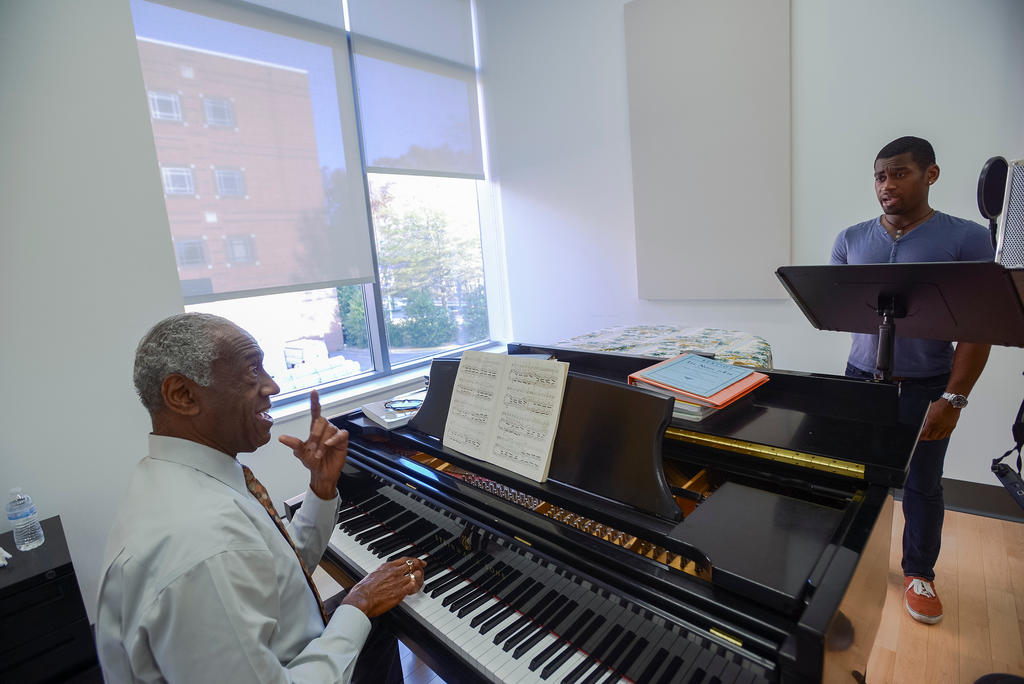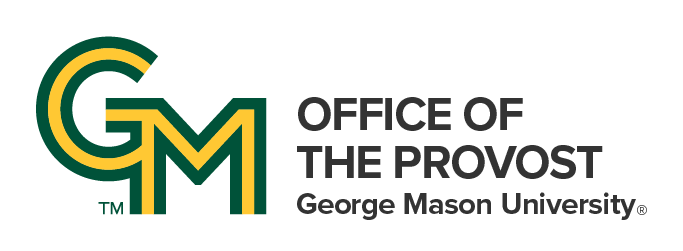Impact Grants look for teams of faculty, staff, and administrators to design innovative multidisciplinary curriculum at either the undergraduate or graduate level. Our goal is to help you create scaffolded, intentional programs that incorporate experiential learning and build on the strengths across George Mason.
Due to budget constraints, the 2024-2025 Curriculum Impact Grant Cycle has been put on hold.
Curriculum Impact Grant Submission Guidelines
Project Summary
No more than 500 words
Describe the overall idea and scope of the project that you are proposing. This summary will be used by reviews and by the Undergraduate Education Office to promote and advertise your curriculum change.
Narrative
No more than 4 pages
Please address each of the following prompts within the narrative:
- Overview: Describe your module of two or more scaffolded courses; include the units involved, the faculty involved with their roles with the team, the scope of the curriculum project, and the goals for the year of funding this grant will provide. Make sure to discuss any co-curricular or global initiatives that are embedded or parallel to the curriculum.
- Mason Impact Area: If this is an undergraduate program, how does the course module relate to one of the Mason Impact focus areas (Research, Scholarly, and Creative Activities; Community Engagement and Civic Learning; or Career, Industry, and Entrepreneurship)?
- Connection with the focus area(s) QEP: For QEP, identify how this curriculum change is connected to the current QEP. How do your curriculum changes allow students to examine the questions/challenges proposed by the QEP? How do your curriculum changes allow students to reflect on anti-racism? ARIE: For ARIE, identify whether you are proposing a curriculum change or engaged in a capacity-building effort (more information is available at the Stearns Center for Teaching and Learning). Identify how your curriculum change supports anti-racist, inclusive, and equitable learning through changes to course content, assessment of learning, and/or sequences of learning. Identify how your capacity-building program will be developed to expand Mason faculty’s access to ARIT resources within or across disciplinary communities.
- Managing the Curricular Change: How will these modules be sustained? What is your process for piloting and then sustaining these course modules? What will be your measures of success at both stages? If these courses cross disciplines, discuss the sustainability of these collaborations after the grant.
- University Enhancement: How will this course module enhance graduate or undergraduate offerings at George Mason? Address the need for the courses (student interest, employer or community needs, etc.). What new content, new teaching format, or new collaborations are being created through this curriculum?
Letters of Support from Chairs and/or Deans
For each unit involved with the grant proposal, provide a support letter, from either the department chair or the dean of the unit, that addresses the desire for curriculum change and the sustainability of these changes in the future.
Budget and Justification
Submitted through the application system
You will enter each budget item into the system individually. Feel free to group supply funds into one item and use the justification section to provide more detail.
- Faculty stipends and professional development funds cannot exceed $3,000 ($9,000 dollar limit per project)
- One graduate student (full-time) per semester (summer, fall, spring)
- Up to two undergraduate students (hourly) can be requested per semester (summer, fall, spring)
- Additional funds for supplies, materials, and travel can be requested
Curriculum Overview
Submitted through the application system
Through a set of guided questions, explain the curriculum change in terms of courses and student learning outcomes. You will include courses that will be redesigned and courses that might be created new, highlighting the courses that engage students through experiential learning and high-impact practices.
2023-2024 Curriculum Impact Recipients
These projects represent an impressive array of collaborations across colleges and schools aiming to create high-impact learning experiences for students, by deepening their engagement and preparing them to make a substantive impact on the world.
Converging Sustainability, Social Justice, Systems Engineering, and Community Engagement (S3&C): Core Competency for Addressing Grand Engineering Challenges
Shima Mohebbi, Judit Ungvari, Jennifer Sklarew (Institute for a Sustainable Earth and College of Science)
Development of a Transdisciplinary Master’s Degree in Quantum Information Science
Michael Jarret, Kris Gaj, Weiwen Jiang, Patrick Vora, Mingzhen Ttian, Andre Clayborne, Benjamin Dreyfus, Jessica Rosenberg, Fei Li (College of Science and College Engineering and Computing)
Dewberry School Composition Programs Redesign
Tom Owens, Michael Nickens, Robert Gillam, Greg Robinson (College of Visual and Performing Arts)
Revision of First-year INYO series for INTO Mason and Mason Korea
Sharon Doetsch-Kidder, Mika Endo, Denia Fraser (INTO and the College of Humanities and Social Science)

Devandas James practices with Professor Samuel Bonds.
